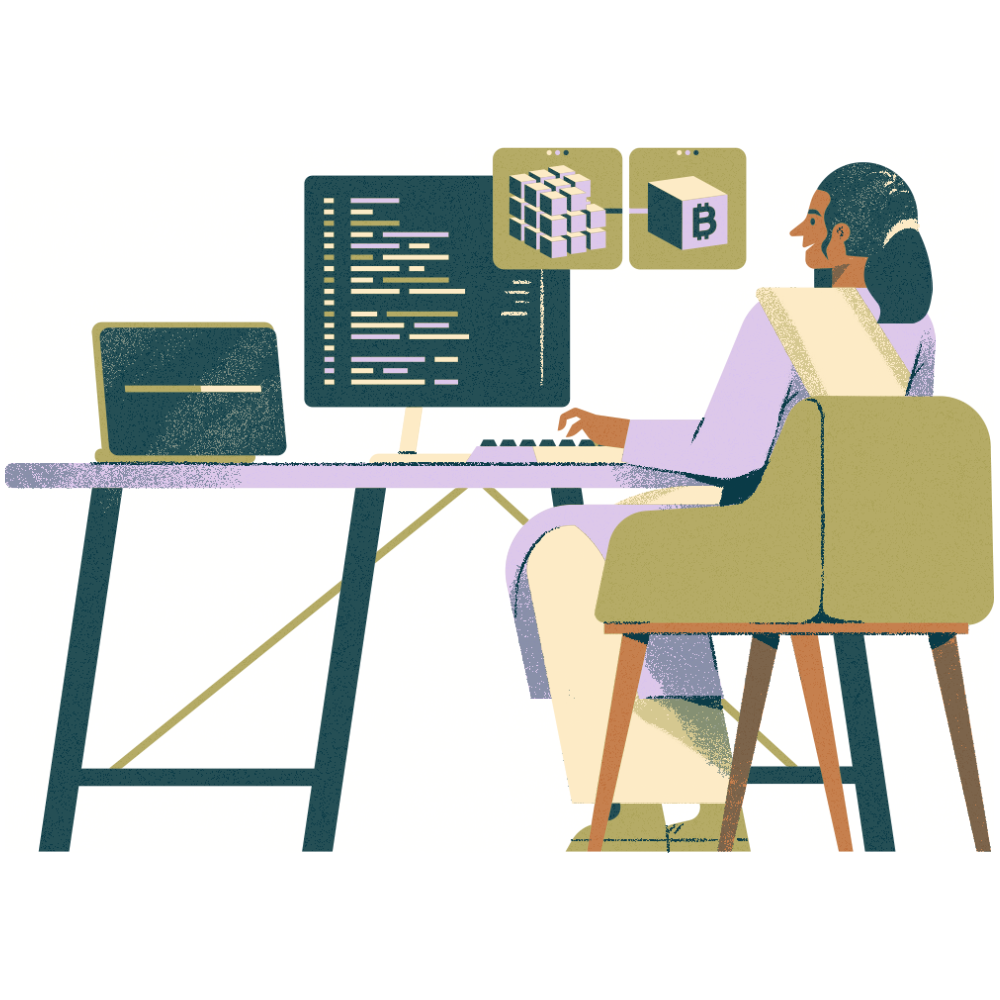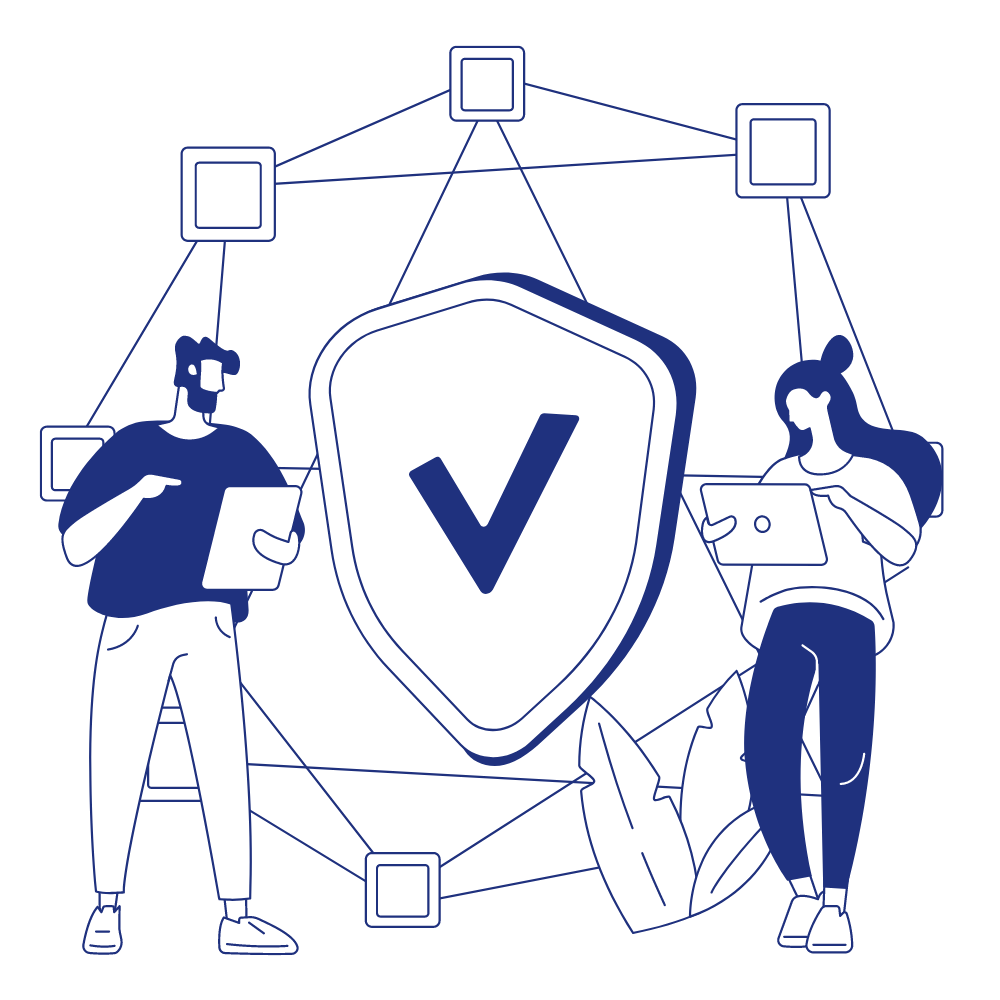BlockChain Developer
Blockchain developers are highly skilled professionals who specialize in creating decentralized applications (DApps), smart contracts, and other solutions leveraging blockchain technology.

Features
Expertise in Blockchain Technology: Blockchain developers possess in-depth knowledge of blockchain principles, including distributed ledger technology, consensus mechanisms, cryptographic algorithms, and decentralized networks. They understand how blockchain works at a fundamental level and can design, develop, and deploy blockchain-based solutions tailored to specific use cases.
Proficiency in Smart Contract Development: Smart contracts are self-executing contracts with the terms of the agreement directly written into code. Blockchain developers are proficient in languages like Solidity (for Ethereum) or Chaincode (for Hyperledger Fabric) to develop smart contracts that automate business processes, enforce agreements, and facilitate transactions on blockchain networks.
Experience with Blockchain Platforms: Blockchain developers are familiar with various blockchain platforms such as Ethereum, Hyperledger Fabric, Corda, and Binance Smart Chain. They understand the unique features, capabilities, and use cases of each platform and can choose the most suitable platform for a given project based on requirements such as scalability, privacy, and consensus mechanism.
Security and Cryptography Skills: Security is paramount in blockchain development due to the immutable and transparent nature of blockchain networks. Blockchain developers possess strong cryptography skills to secure transactions, encrypt data, and implement robust authentication and authorization mechanisms. They also follow best practices for smart contract security to mitigate risks such as vulnerabilities and exploits.
Integration with Existing Systems: Blockchain developers are adept at integrating blockchain solutions with existing systems and applications, such as enterprise resource planning (ERP) systems, customer relationship management (CRM) software, and supply chain management platforms. They can design interoperable solutions that seamlessly exchange data and assets between traditional IT infrastructure and blockchain networks.
Benefits
Transparency and Immutability
Blockchain technology provides transparency and immutability by recording all transactions and data entries in a tamper-proof, decentralized ledger. Blockchain developers leverage these features to create transparent and auditable systems that enhance trust, accountability, and integrity in various domains, such as finance, supply chain, and healthcare.


Decentralization and Trustlessness
Blockchain eliminates the need for intermediaries by enabling peer-to-peer transactions and consensus mechanisms that validate and record transactions without centralized control. Blockchain developers leverage decentralization to create trustless systems where participants can interact directly, reducing costs, inefficiencies, and the risk of fraud or manipulation.
Cost Efficiency and Disintermediation
By eliminating intermediaries and automating processes with smart contracts, blockchain developers help organizations reduce costs associated with transaction fees, third-party services, and manual reconciliation. Blockchain-based solutions streamline workflows, increase operational efficiency, and enable new business models that bypass traditional intermediaries.


Enhanced Security and Data Integrity
Blockchain technology offers enhanced security and data integrity through cryptographic encryption, consensus mechanisms, and decentralized validation. Blockchain developers leverage these features to create secure, tamper-proof systems that protect sensitive data, prevent unauthorized access, and ensure the integrity and authenticity of transactions and records.
Innovative Use Cases and Business Opportunities
Blockchain developers unlock innovative use cases and business opportunities by leveraging blockchain technology to solve real-world problems and address inefficiencies in existing systems. From decentralized finance (DeFi) and supply chain traceability to digital identity management and voting systems, blockchain developers empower organizations to explore new avenues for growth, differentiation, and value creation.

In summary, blockchain developers bring a unique combination of features and benefits to the table, leveraging their expertise in blockchain technology, smart contract development, security, and integration to create innovative, secure, and transparent solutions for various industries and use cases. With their skills and knowledge, blockchain developers play a pivotal role in driving the adoption and evolution of blockchain technology in the digital economy.




